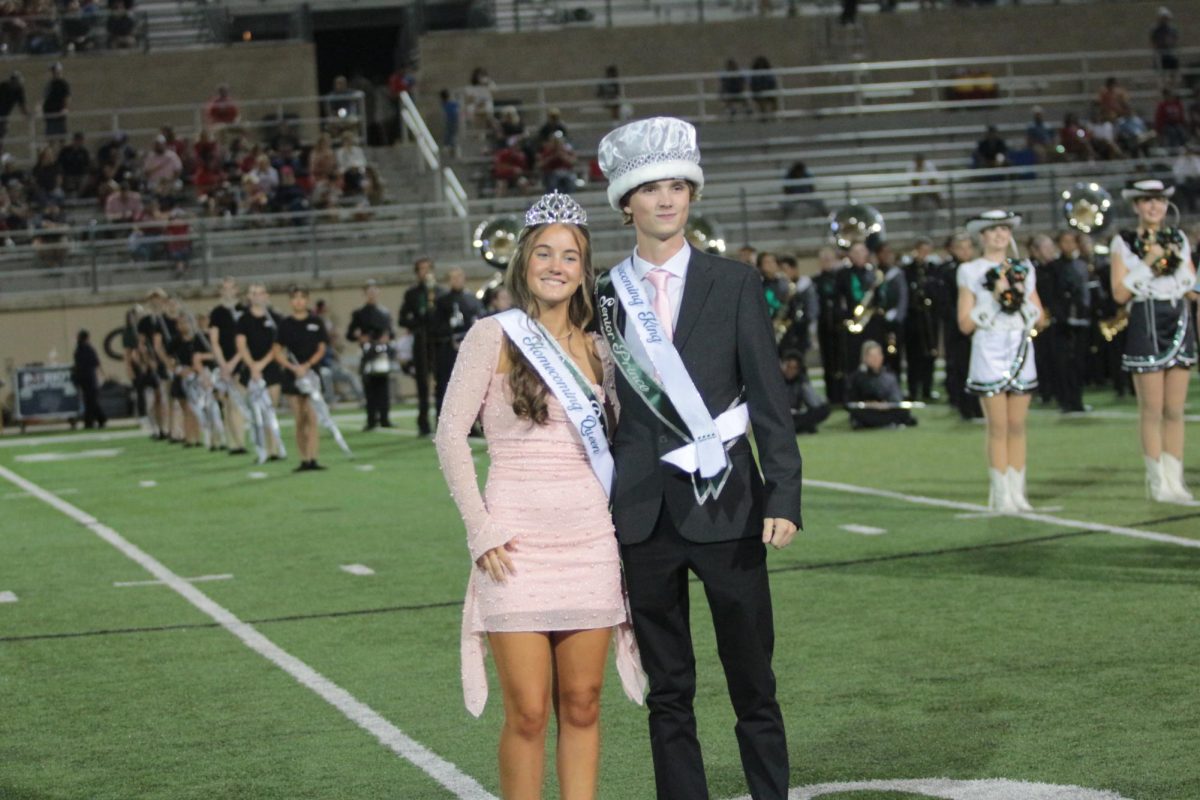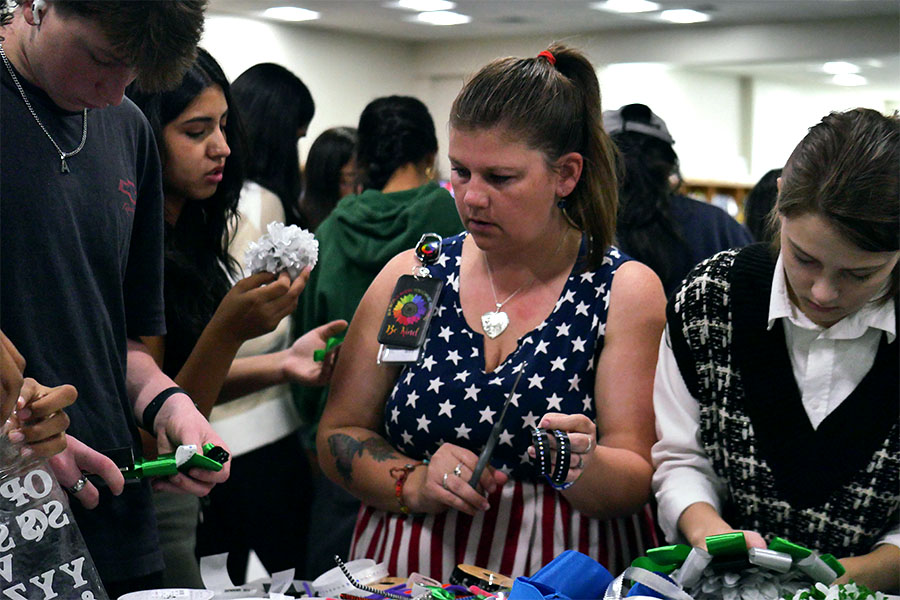In this economy, it’s a struggle to imagine any money, but humor me, and picture a dollar bill. Imagine our good friend, George Washington—his stolid expression and unresponsive eyes giving no allusion to the great American values he represents. Life, liberty…and the pursuit of money? What would George say if he heard that? The fact is, in a civilized world, money is a necessity, but do Americans value their money too much? How did it become a virtue to be wealthy?
The American ardor for money is not a new addition to our mindsets. Long ago, the American Dream promised that a man in America has the opportunity to start with nothing and become a rich and therefore successful person. Whether that be VIA goldmines, cattle ranching, railroads, oil- America had it all! And thusly immigrants flocked in from all over the world to “cash in.” In the 1890s, banker J.P. Morgan single handedly bailed the US out of detrimental debt. With events like this, Americans quickly realized that money is power. With the belief that great wealth is plausible, is it easy to see why Americans began to believe that those who could not obtain it weren’t as capable as those who could. In the classic psychology experiment, Pavlov trained his dogs to salivate at the tone of a bell, for they had been programmed to connect the sound to the coming of food. It just may be that Americans have falsely connected the “ka-ching!” of a cash register to our perception of success.
In the news and media today the biggest stories are ones that tell of the latest gossip or drama in our favorite celebrities lives—and you can bet any magazine or newspaper that aims to sell copies will make these their front page stories. When the most prevalent people in news are the rich and famous, we begin to think that rich people are more important. Sorry doctors, artists, governors, philosophers, and peace corps members, you are all going to have to take a backseat to Britney Spears. In fact, this is the reason Britney can demand twenty bottles of lukewarm water, a bag of only green M&Ms and a heated toilet seat, while the cancer cure researchers can barely get their dirty bathroom made a priority. While Britney contributes to the world in her own special way (sugary pop singles, sensual dances, and bringing the shaved head back in style), it can be argued that the cancer cure researchers have a slightly higher purpose. But in face to face with a cancer researcher we are not in the teary-eyed, sweaty awe that a Britney meeting would bring on. Their dignity does not touch us, nor does their intellect impress us. Here is the difference: money.
To an American “the visible signs of wealth testify to an inward state of grace.” So naturally, we are compelled to flaunt as many signs of our wealth as possible. Those new designer earrings go great with your Gucci bag! But you might need to get a different color Lexus to match… what a better way to nonverbally shout, “Hey world! Look how well I do!” In our society, people aren’t considered successful unless they have something physical to personify their success. And we are so distracted by the pursuit of money that we often forget that there are other things in the world for pursuing– like our relationships, families, and passions. These days you might find more artists going to college for accounting than art. Art may not always pay the bills, but aren’t you sacrificing a lot more by not making art? I recently read an article written by a European man which noted that “in America you are honored because of the money you possess,” this was in direct contrast with his culture where wisdom and character make you an honored individual. Imagine a society where people who posess these qualities demand the highest level of respect. Your grandparents and teachers might be the celebrities!
Those who become rich are few and far between. Because Americans believe they make their own fate in this world, what money represents is an incalculable source of our identity. It is important for everyone (not just Americans) to remember that money has no actual value other than what we attach to it. Hopefully our children won’t live in a world where the Lady Liberty drops her book for a Coach bag,or where our Eagle drops its olive branches for a stack of twenties.






![As her hair blows in the wind, senior Brianna Grandow runs the varsity girls 5K at the cross country district meet last Thursday. Grandow finished fourth in the event and led the varsity girls to regionals with a third place placement as a team. “I’m very excited [to go to regionals],” Grandow said. “I’m excited to race in Corpus Christi, and we get to go to the beach, so that’s really awesome.” Photo by Addison Bruce](https://cphswolfpack.com/wp-content/uploads/2025/10/brianna.jpg)


![Broadcast, yearbook and newspaper combined for 66 Interscholastic League Press Conference awards this year. Yearbook won 43, newspaper won 14 and broadcast took home nine. “I think [the ILPC awards] are a great way to give the kids some acknowledgement for all of their hard work,” newspaper and yearbook adviser Paige Hert said. “They typically spend the year covering everyone else’s big moments, so it’s really cool for them to be celebrated so many times and in so many different ways.”](https://cphswolfpack.com/wp-content/uploads/2025/05/edited-ILPC.jpg)





![Sitting with her friend senior Sohpia Struve at last year’s Austin City Limits Festival, senior Ava Zuniga poses for a picture under a pavilion. They are frequent attendees at ACL, an annual music festival at Zilker Park. “I would recommend seeing a bunch of people,” Zuniga said. “This past year, we camped out for Chappell [Roan] for a really long time. I think the whole point of ACL, [which] is a lot of fun, is that you can go see so many different people, even if you don’t know them. So by camping by one person, it really limits yourself from being able to go see a bunch of people.” Photo courtesy of Ava Zuniga](https://cphswolfpack.com/wp-content/uploads/2025/10/EE9E9484-FE6F-4AA0-B5F5-0C177AB32841-1200x857.jpeg)
![Looking down at his racket, junior Hasun Nguyen hits the green tennis ball. Hasun has played tennis since he was 9 years old, and he is on the varsity team. "I feel like it’s not really appreciated in America as much, but [tennis] is a really competitive and mentally challenging sport,” Nguyen said. “I’m really level-headed and can keep my cool during a match, and that helps me play a bit better under pressure.” Photo by Kyra Cox](https://cphswolfpack.com/wp-content/uploads/2025/09/hasun.jpg)

![Bringing her arm over her head and taking a quick breath, junior Lauren Lucas swims the final laps of the 500 freestyle at the regionals swimming competition on date. Lucas broke the school’s 18-year-old record for the 500 freestyle at regionals and again at state with a time of 4:58.63. “I’d had my eye on that 500 record since my freshman year, so I was really excited to see if I could get it at regionals or districts,” Lucas said. “ State is always a really fun experience and medaling for the first time was really great. It was a very very tight race, [so] I was a bit surprised [that I medaled]. [There were] a lot of fast girls at the meet in general, [and] it was like a dogfight back and forth, back and forth.” Photo by Kaydence Wilkinson](https://cphswolfpack.com/wp-content/uploads/2025/03/Kaydence-2.7-23-edit-2.jpg)
![As the support team sits and poses for a photo in the cafeteria with the counseling team they eagerly wait to start their day. "We [all] seem to be a team, I get up every day and there's days where I don't want to go to work today, but I'm thankful that I have a job and I'm blessed to have what I have," Christopherson said. Photo Courtesy of Julie Weltens.](https://cphswolfpack.com/wp-content/uploads/2025/01/AF9E8470-10D7-4C91-BF28-EC8F86BAB66C-1200x852.jpeg)
![Jumping off the ground, senior linebacker Bennett Patton snatches the ball out of the air for an interception at Thursday’s game against Chaparral. Patton had two interceptions in the 56-14 victory, tying the school record for interceptions in a game. “I was just playing the game,” Patton said. “[I’m] going to go into next week, forget about it and stay humble.” Photo by Harper Chapman](https://cphswolfpack.com/wp-content/uploads/2025/09/bennett-interception.jpg)














